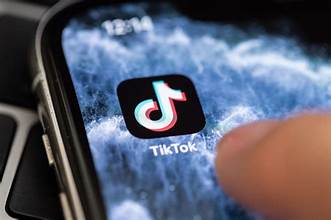TikToker Drug Ads Spark Demands for FDA to Clarify Its Authority
The FDA is under scrutiny by federal lawmakers and regulatory attorneys who want clarity on the agency’s authority over social media influencers promoting prescription drugs without clear warnings on the risks.
Anti-obesity medications like Novo Nordisk A/S’s Wegovy and Ozempic and Eli Lilly & Co.’s Zepbound have grown in popularity due in part to social media influencers paid by telehealth providers and other companies to tout their successes with the medications. FDA Commissioner Robert M. Califf, when questioned about the growing popularity of these medications at a National Press Club event on Wednesday, claimed the agency doesn’t “regulate third parties who start clinics and sell things over the internet.”
“I’ve recently been noticing a number of these ads that don’t give the whole risk-benefits story, and we don’t have authority to really regulate these folks,” Califf said.
But just what the FDA can and cannot regulate remains unclear.
In response to a December Bloomberg Law investigation into social media influencers touting prescription drugs, FDA officials said that even without updated guidance it had the authority to monitor social media posts from physicians or anyone, including influencers, who promote a drug on behalf of a manufacturer or distributor.
When reached for comment following Califf’s statements this week, the FDA confirmed its advertising “laws may apply to telehealth providers and websites, depending on what activities they undertake and how they are structured.”
“Assessment of what authorities apply to a particular situation is necessarily dependent on the specific facts,” the FDA said in an emailed statement.

The FDA’s authority on advertising needs to be clarified for the pharmaceutical industry and general public, regulatory attorneys say.
The agency “should issue formal guidance” to “provide a little bit more clarity about who’s responsible for what in this case and what FDA touches and what they don’t touch,” said Bryant Godfrey, former senior lead regulatory counsel for the FDA’s Office of Prescription Drug Promotion.
And Sens. Dick Durbin (D-Ill.) and Mike Braun (R-Ind.) this week called on the FDA to update its decade-old guidance on social media prescription drug promotion, as well as clarify when its laws apply to paid social media influencers. In a letter to the agency, the senators cited Bloomberg Law’s investigation, which found examples of posts that led individuals to start taking medications, only to experience vomiting and other side effects they say the posts didn’t adequately warn them about.
Agency Oversight
While the Federal Trade Commission oversees most advertising in the US, the FDA is responsible for regulating the marketing and distribution of prescription drugs for advertisements “issued by or on behalf of that drug’s manufacturer, packer, or distributor,” the agency said.
Bloomberg Law’s investigation into the issue found that out of the 40 publicly available letters the FDA’s prescription drug office has sent since 2017 notifying pharmaceutical companies of ad violations or questionable promotional activities, only seven dealt with sponsored posts on platforms including Facebook, Instagram, and YouTube. None mentioned TikTok, which has 150 million active users a month in the US.
While Novo Nordisk said it doesn’t pay influencers to talk about Ozempic or Wegovy on their personal channels, multiple telehealth companies that prescribe and distribute the drug and other versions of it partner with TikTokers to share success stories.
“It’s quite noticeable that there is typically zero risk information in those ads,” said Joanne Hawana, an attorney at Mintz, Levin, Cohn, Ferris, Glovsky and Popeo, P.C., who counsels pharmaceutical companies on FDA regulations.
Measuring how the FDA’s regulations apply to telehealth companies requires regulators to “take a look behind the scenes,” at how telehealth services are connected with pharmaceutical manufacturers, said Godfrey, who is now the co-chair of Foley Hoag LLP’s FDA Practice Group and counsels pharmaceutical companies on advertising regulations.
“Clearly if there was a pharma company or some sort of medical products company that was in the mix, and working with that particular telehealth provider then yes, that particular scenario could lend itself to FDA jurisdiction over the promotional materials,” Godfrey said.
He said the FDA can still take action on telehealth providers not directly connected with drugmakers under the Federal Food, Drug, and Cosmetic Act’s prohibition on “the introduction or delivery for introduction into interstate commerce of any food, drug, device, or cosmetic that is adulterated or misbranded.”
Durbin and Braun, who want the FDA to respond to their questions by March 27, cited Califf’s designation of health misinformation as a leading cause of death in the US in asking for an immediate response from the agency.
“The threats to children from misleading and unsubstantiated advertisements necessitate action,” they wrote.
Source: news.bloomberglaw.com


